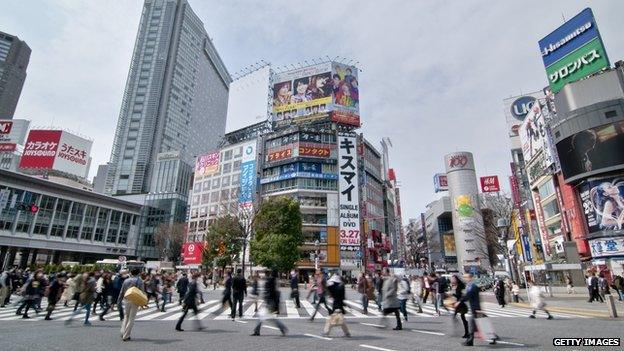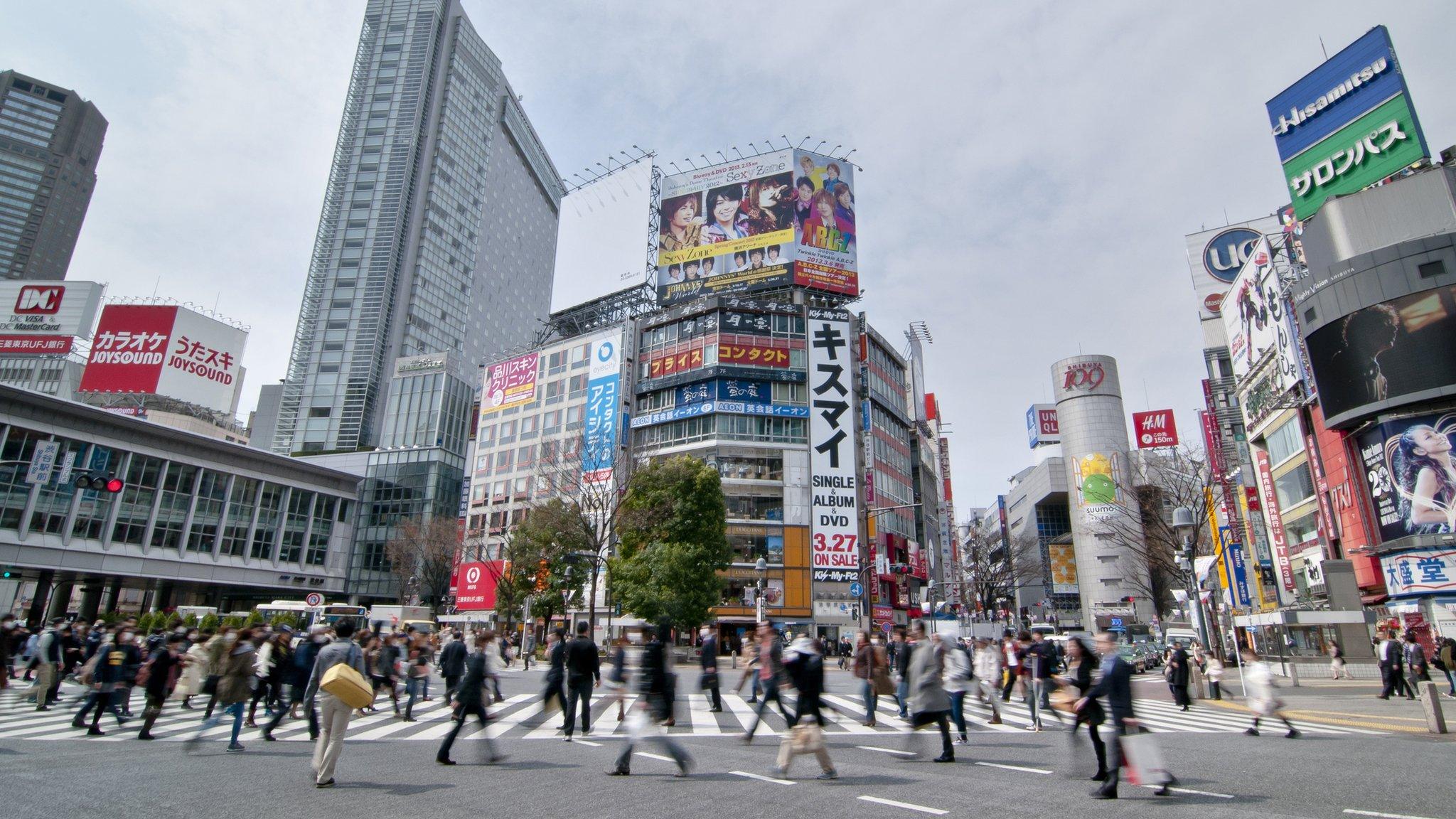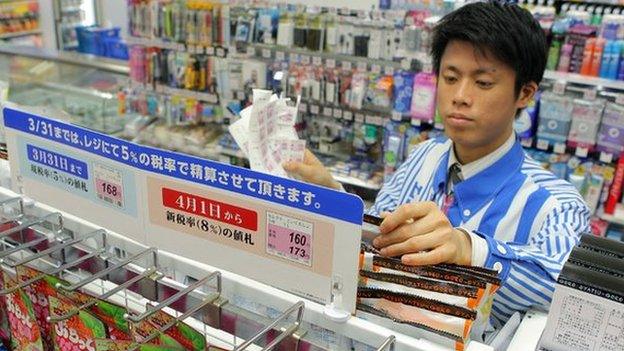Japan reveals plans to cut corporate tax to below 30%
- Published

Japan's corporate tax of more than 30% is the highest among industrialized nations
Japan has unveiled plans to cut the country's corporate tax to below 30% in several stages starting next year.
The move is part of Prime Minister Shinzo Abe's plan to revive the economy, a pledge made when he took office in December 2012.
Japan's corporate tax rate, at nearly 36% for large companies operating in the capital Tokyo, ranks among the highest in the industrialised world.
The latest move has been dubbed as Mr Abe's "third arrow".
Arrows launched
The first two arrows launched last year and focused on using fiscal and monetary policies to turn the economy around.
Details in terms of how the tax cut will be implemented are yet to be revealed by the Prime Minister's office.
Mr Abe's previous economic reform measures included working with the country's central bank, the Bank of Japan to embark on an aggressive quantitative monetary easing policy, through monthly bond purchases.
That helped drive down the value of the Japanese yen against the US dollar, and helped to benefit Japanese exporting companies, such as the automakers.
Deflation battle
The central bank has also set an inflation target of 2%, which it hopes to achieve in a few years' time.
The country had been battling deflation, or falling prices for nearly two decades. But that may be changing, as prices have been rising over the last several months.
That was helped by a raise in sales tax in April this year, to 8% from 5%.
That's the first increase in the sales tax, in 17 years. And it will rise again to 10% in October 2015.
The gradual increases in the sales tax are aimed at covering rising social welfare costs linked to Japan's ageing population.
Japan currently has one of the lowest birth rates in the world.
It also has the world's highest ratio of elderly to young people, raising serious concerns about future economic growth.
It will take time
Mr Abe also said he would end compulsory overtime payments for workers earning over 10m yen a year (£57,000) and raise the proportion of female managers to 30% by 2020 from last year's 7.5% rate.
Linda Yueh, the BBC's chief business correspondent, said the changes were "crucial to getting growth going".
However, economists warned it would be years before the country benefitted from the planned changes.
"Various legislation must be enacted and it will take time for companies to begin to act. Therefore, it will be 10 to 20 years before the potential growth rate rises," said Kenji Yumoto, vice chairman of the Japan Research Institute.
And Naoki Iizuka, an economist at Citigroup Global Markets Japan, said Mr Abe's plans needed to be bolder.
"Abe's 'Third Arrow' growth strategy seems to me like a dart not an arrow," he added.
- Published24 June 2014
- Published18 June 2014

- Published15 May 2014

- Published1 April 2014
